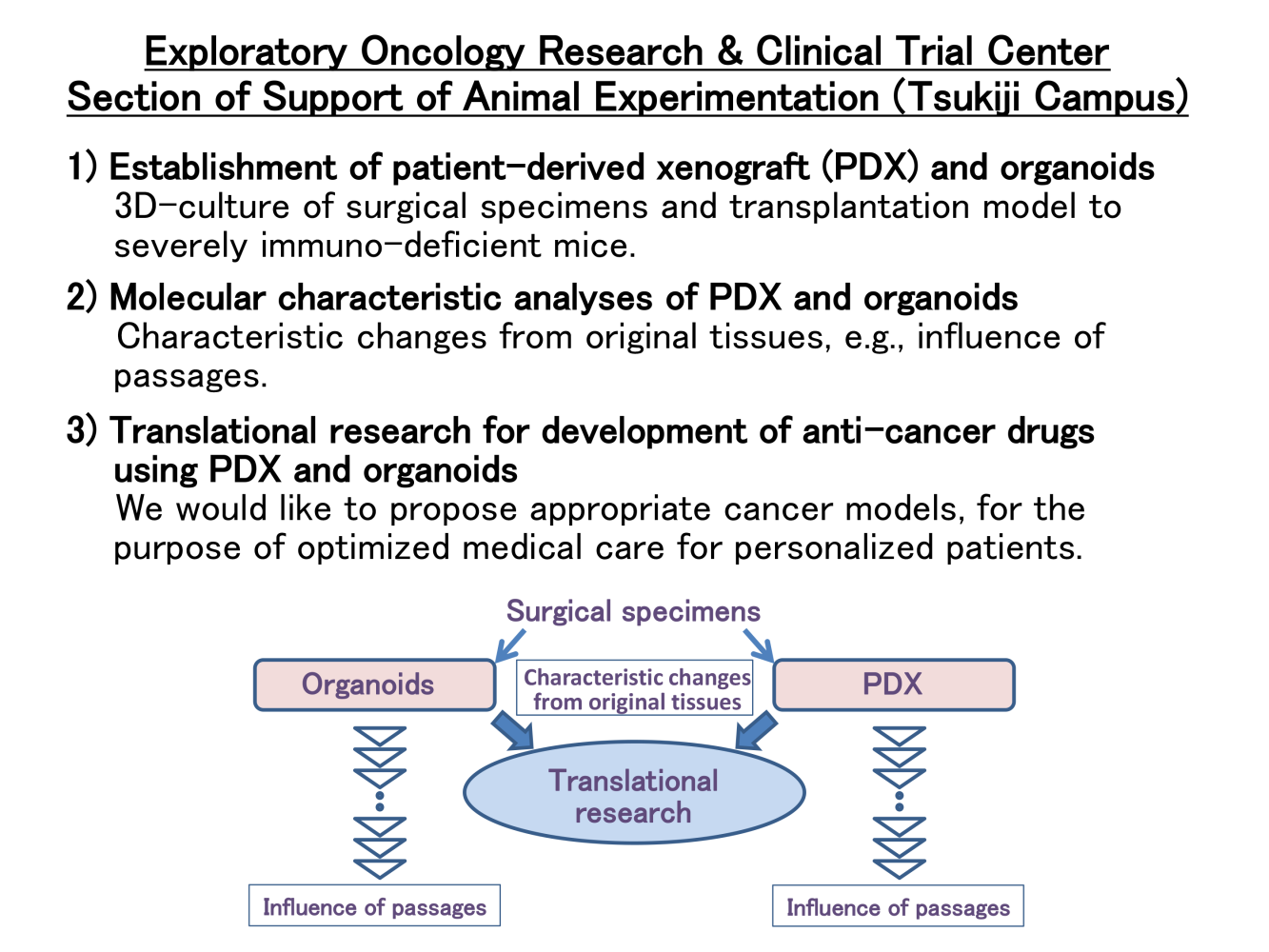Home > Organization > Section of Support of Animal Experimentation
Section of Support of Animal Experimentation
News
- Jun. 6, 2022
- Publications have been updated
In the processes of anti-cancer drug development, one of the most important issues is selections of candidates with optimal actions from many basic chemical/biological products. For such purposes, various biological resources such as established cancer cell lines are very important. On the other hand, preclinical studies using animal models are also absolutely necessary for confirmation/validation of the actions observed in the cell line based research and for searching biomarkers predicting effects of the new drugs. Such investigations bridging between basic and clinical research are called translational research (TR).
The pivotal role of the Support of Animal Experimentation is to establish animal/cell culture models (patient-derived xenograft-PDX, 3D-cultured organoids, 2D-cultured fibroblasts), which may be accelerative to obtain non-clinical proof of concept (POC) for the development of novel anti-cancer drug candidates in the Exploratory Oncology Research & Clinical Trial Center (EPOC) at the Tsukiji campus TR group. In vivo and in vitro models derived from clinical tumor specimens are considered to reflect more accurate environment of cancer tissues in human as compared to models using conventionally established cancer cell lines. On the other hand, comparative analyses of PDX and 3D-cultured systems have not yet been completely conducted, and we now attempt to reveal their characteristics.
The establishment and characterization of PDX and/or 3D-cultured organoid models of variety types of cancers in our team will accumulate knowledge and experience of case-by-case methodologies for the establishment and construct a systematic library of PDX/organoids with omics-based data sets. The NCC Oncopanel analysis revealed that mutated genes found in PDX/3D-cultured organoids were sometimes different from those in original clinical cancer specimens. The cause of such changes is considered partly to be tumor heterogeneity and/or selective growth of tumor cells. We attempt to accumulate omics data of PDX/3D-cultured organoid models and utilize them as basic information for TR. Other molecular characteristic differences (gene expression profiles, reactions to anti-cancer drugs) among organoids, PDX and original cancer tissues, influence of passages, freeze-saw effects are now under evaluation.
As mentioned above, our members in the Support of Animal Experimentation (Tsukiji) focus on establishment of patient-derived xenograft and/or organoid models, as well as basic research for evaluation of molecular characteristics of these models and translational research for newly developing anti-cancer drugs using these models.

